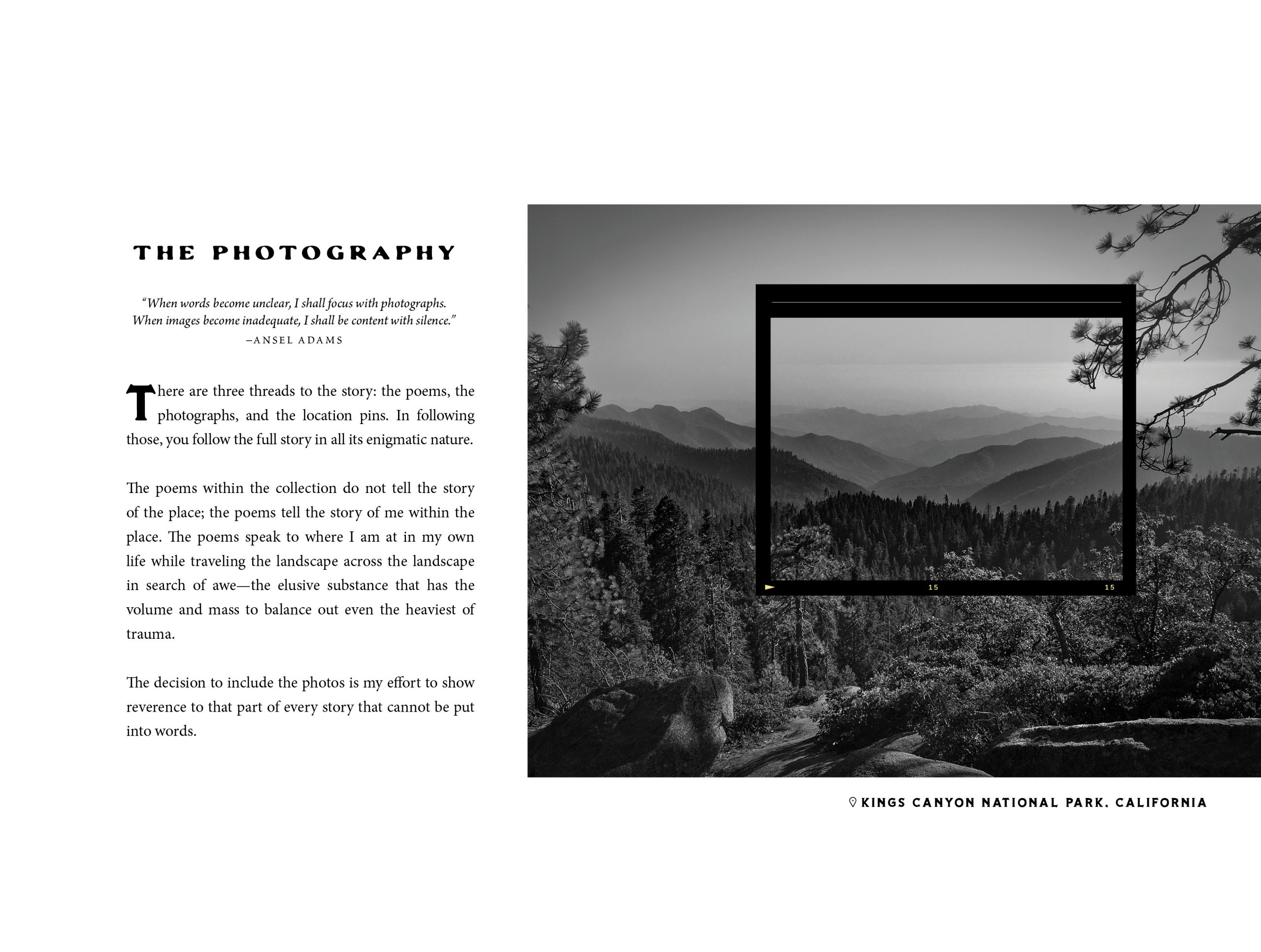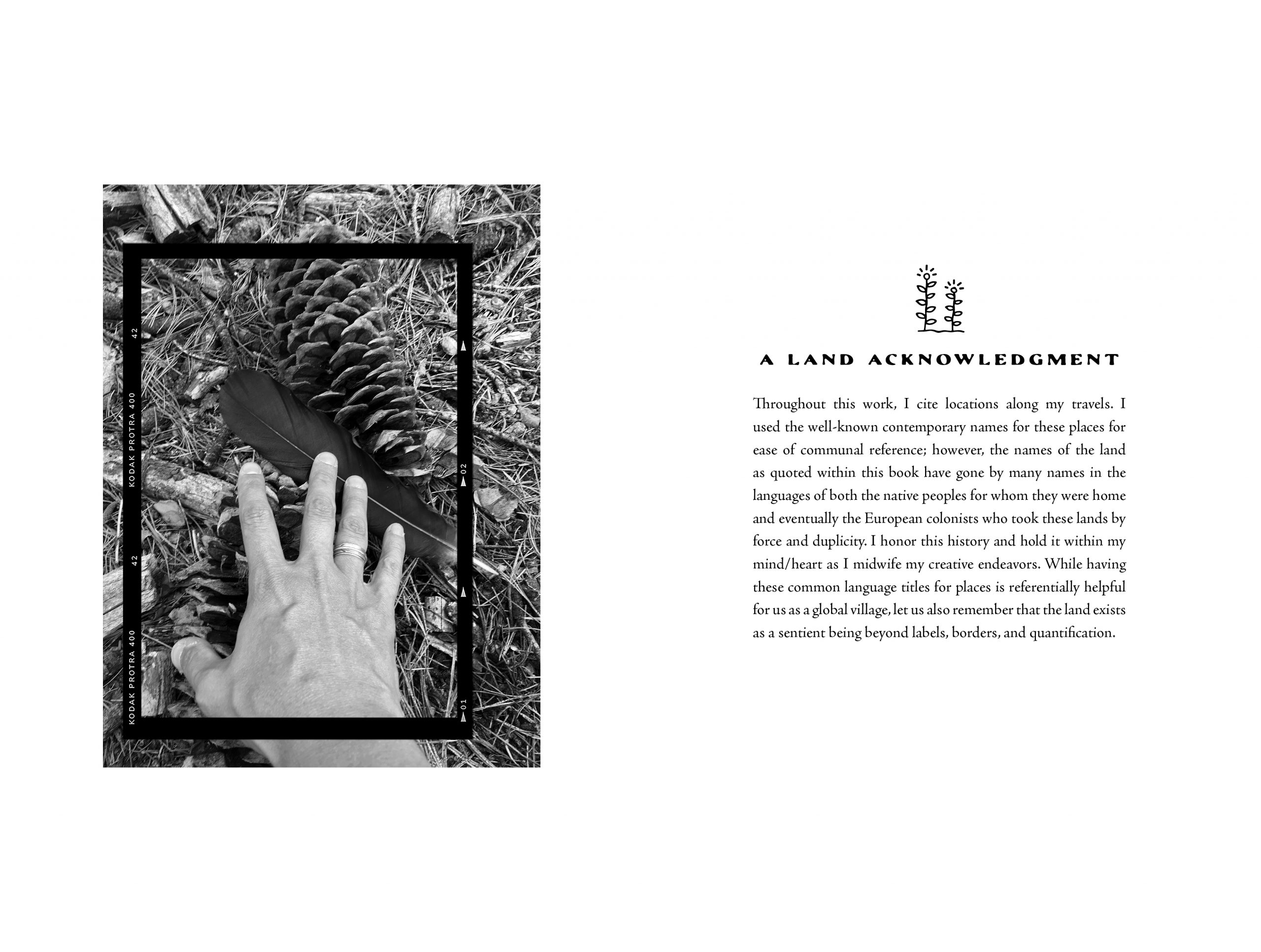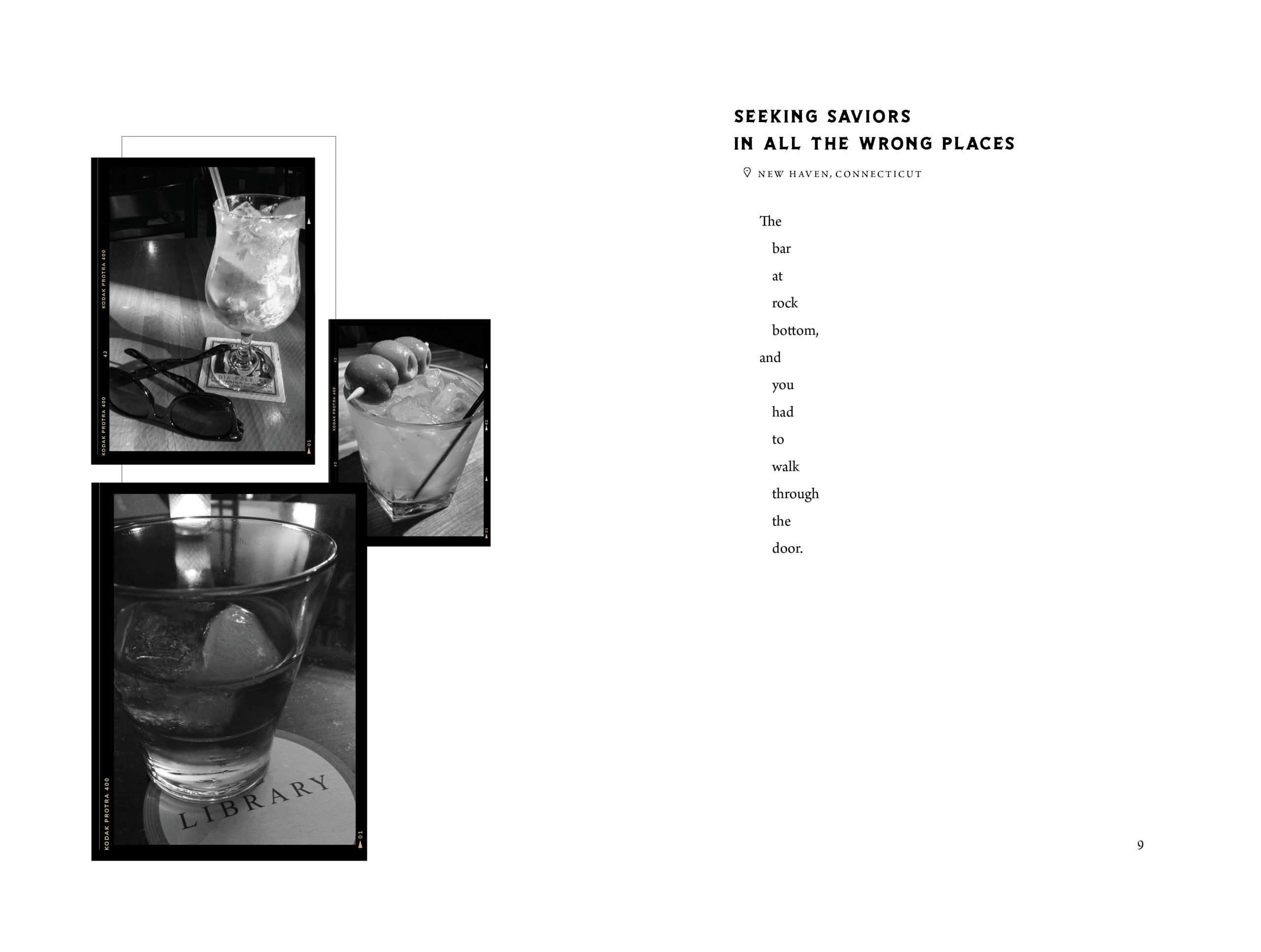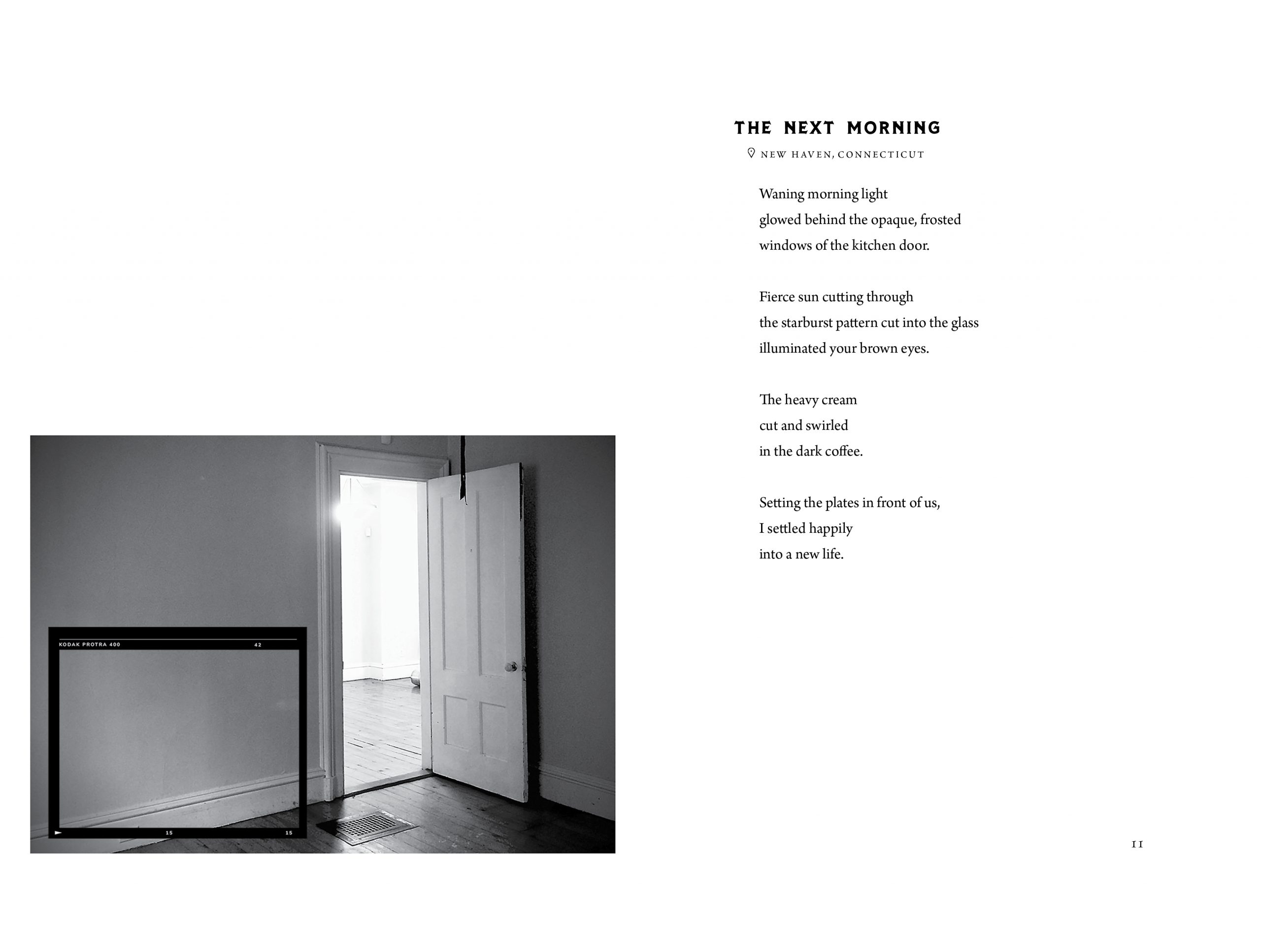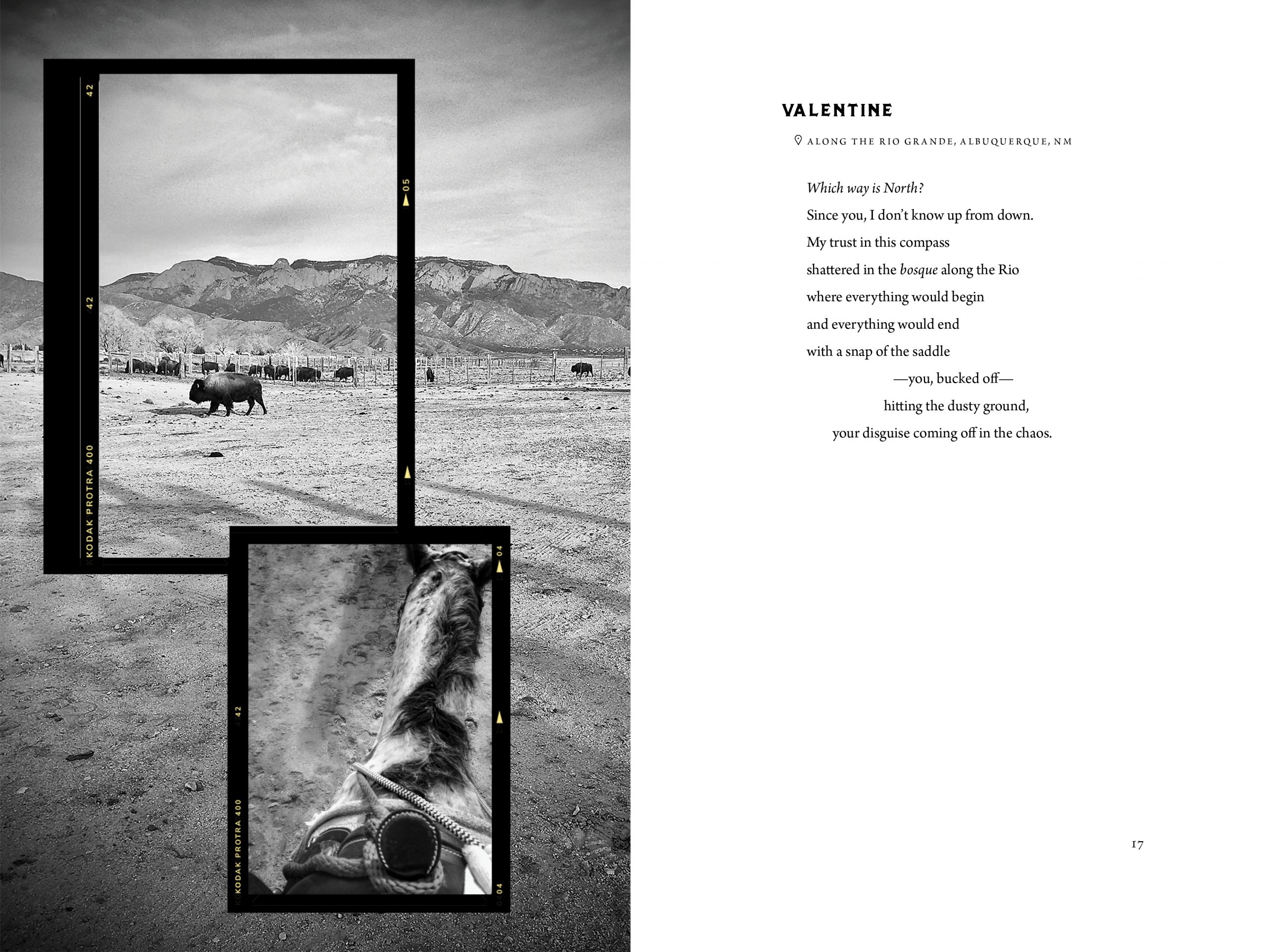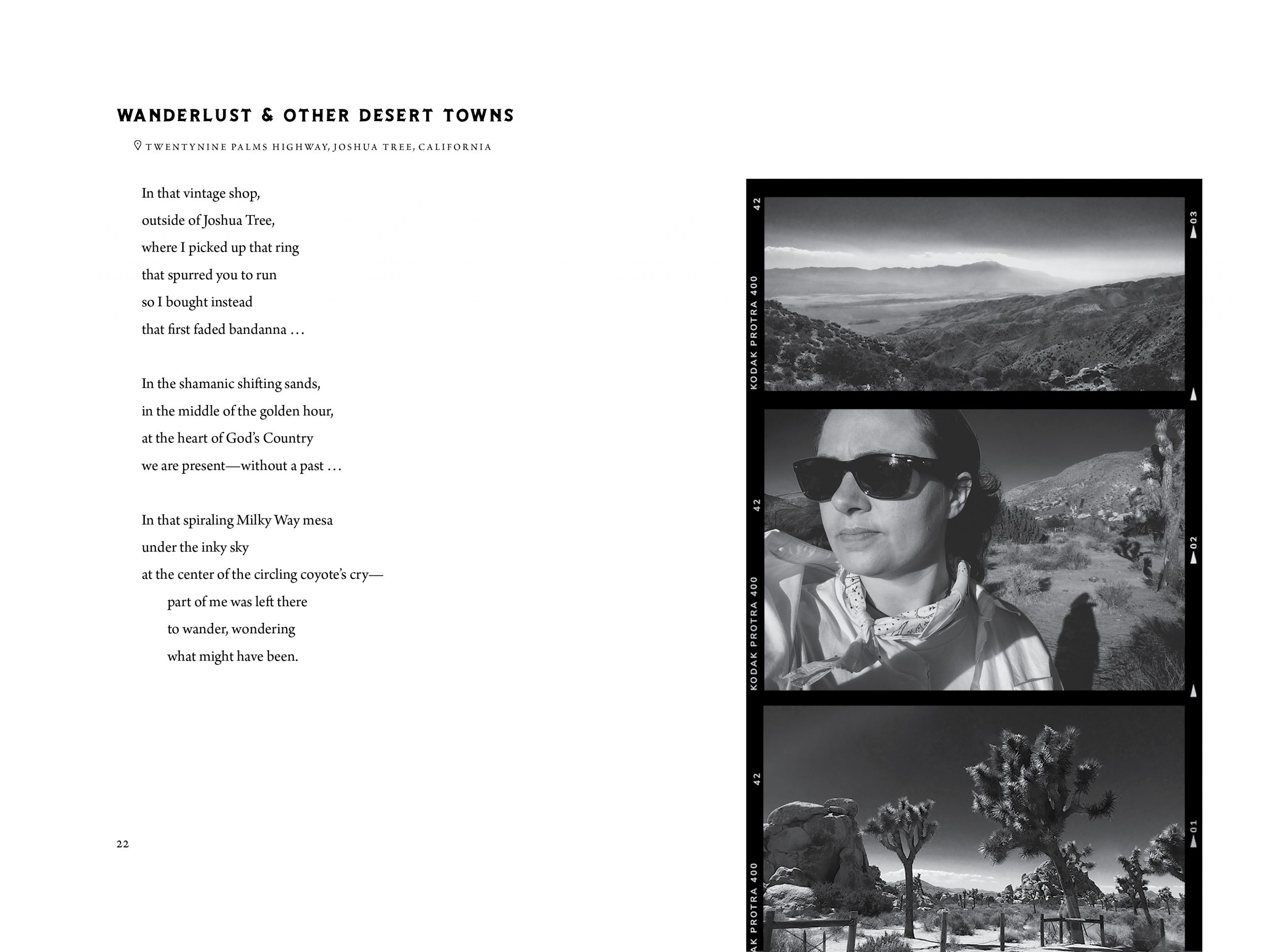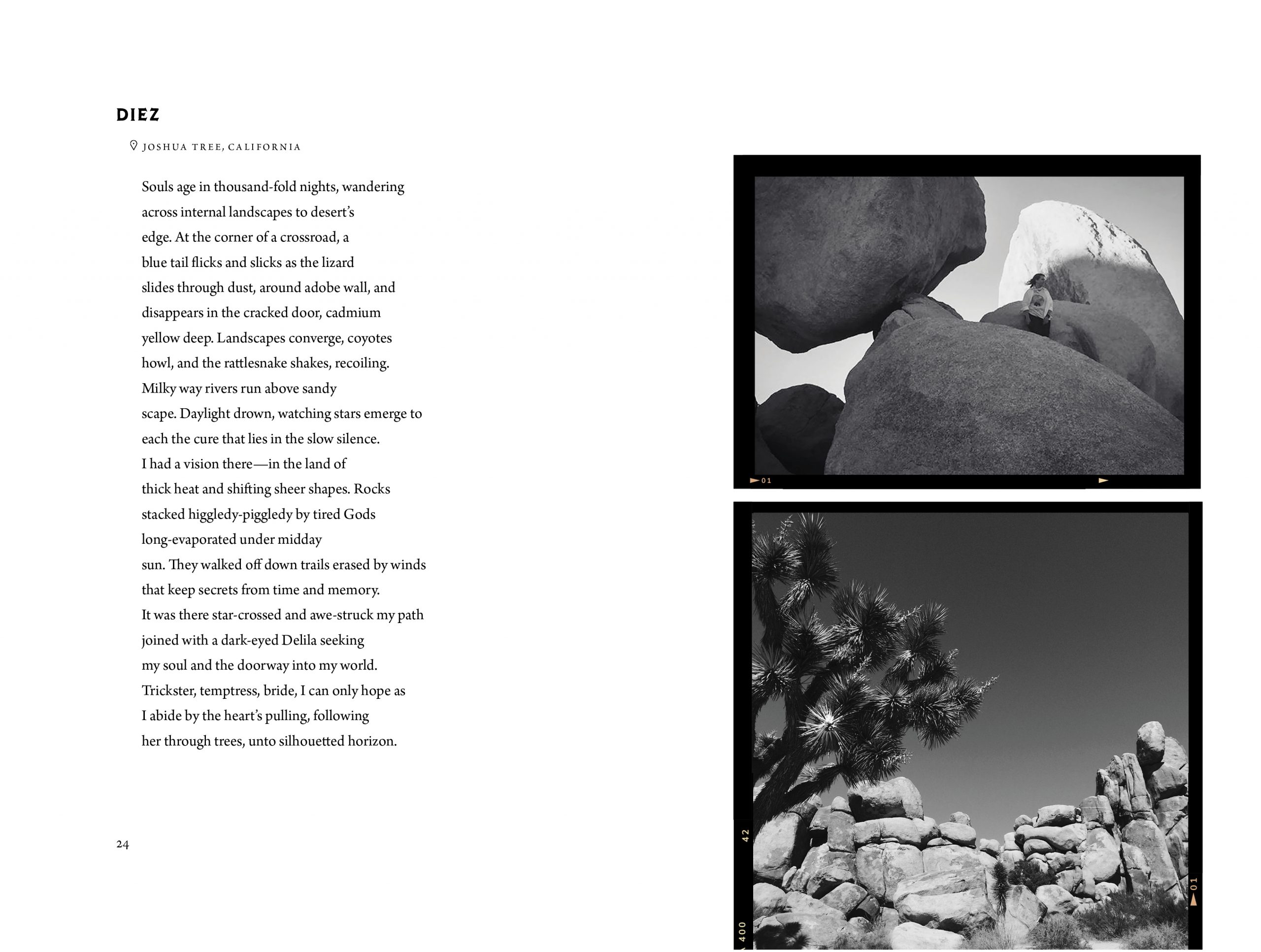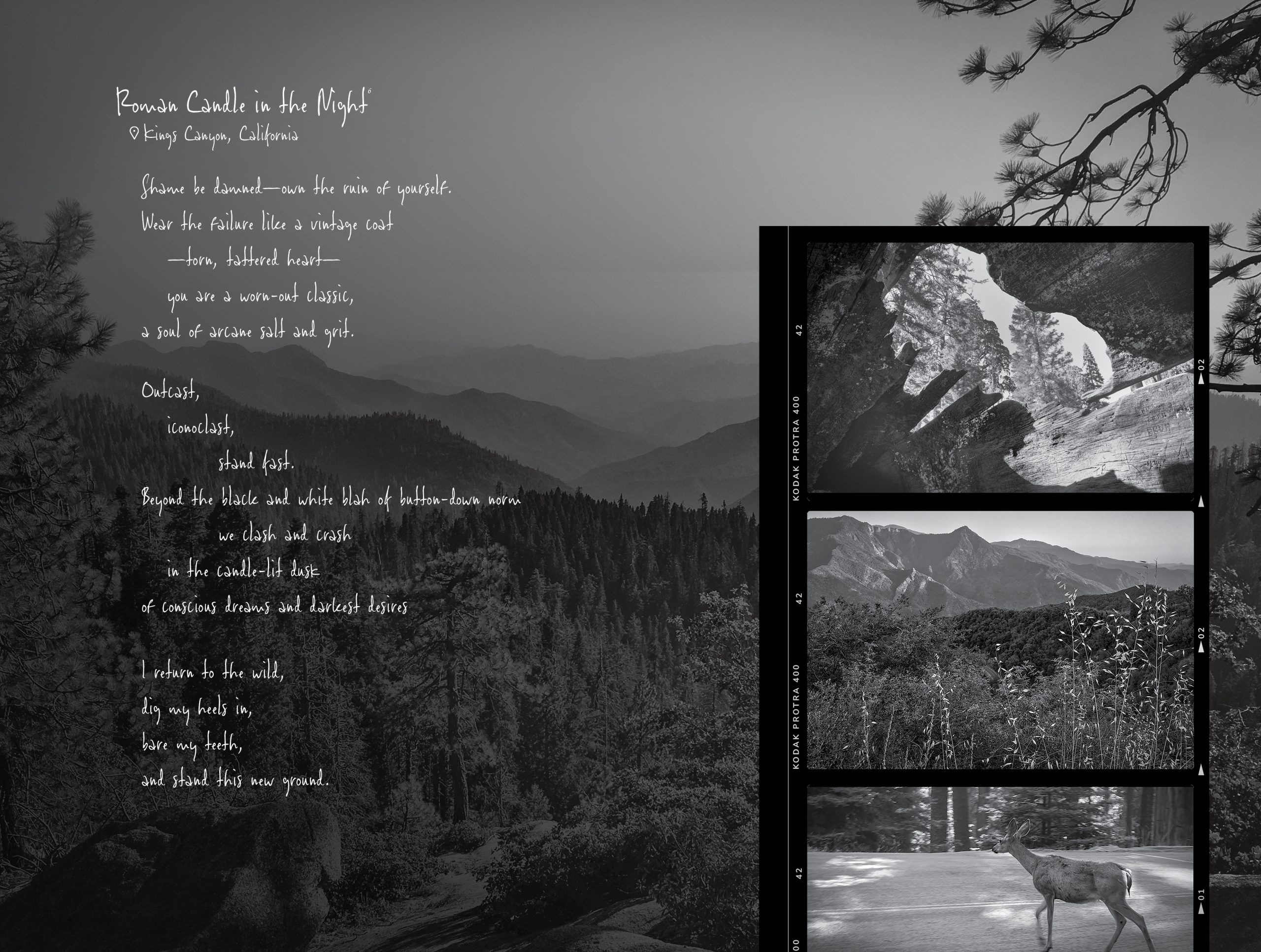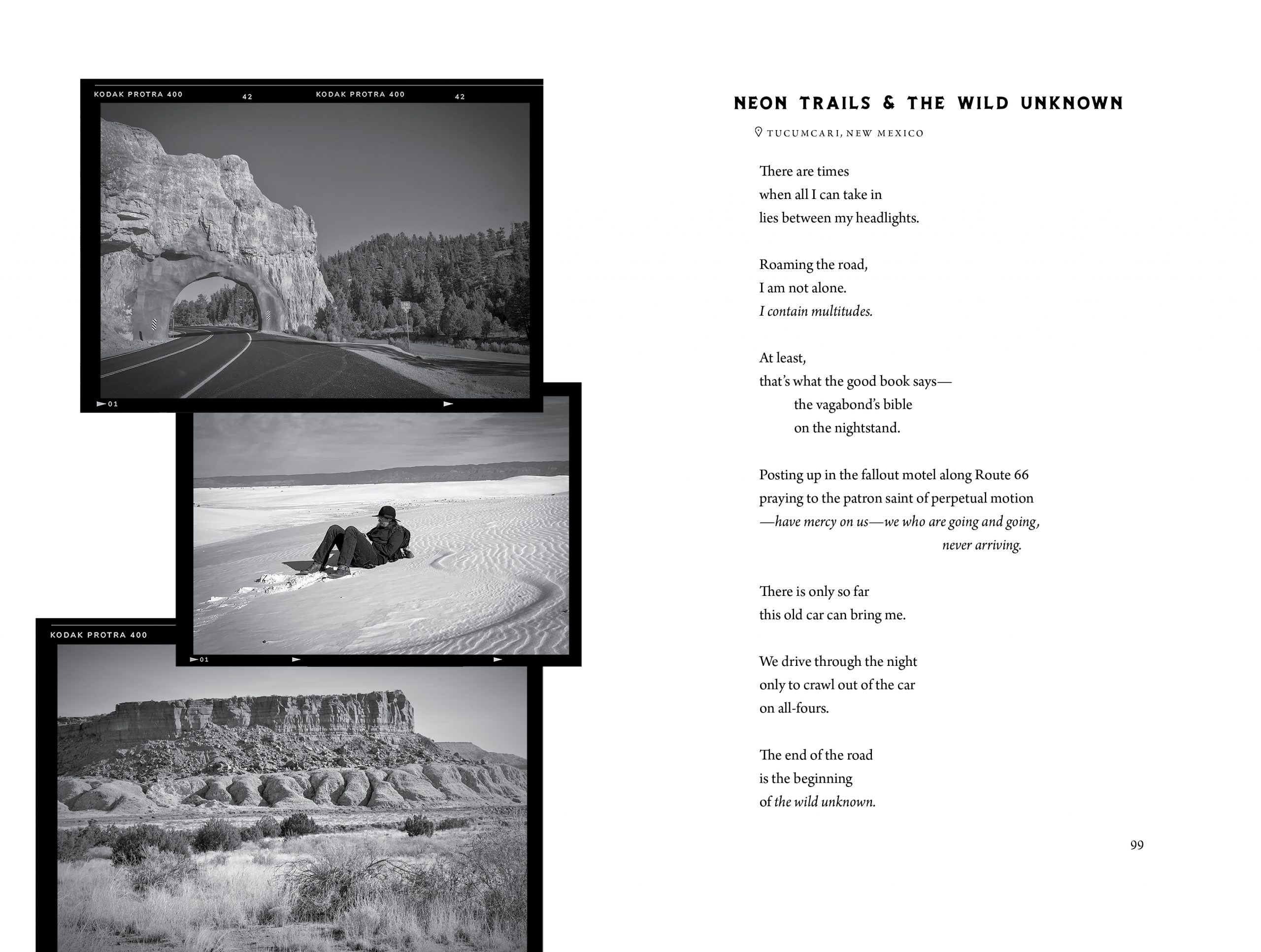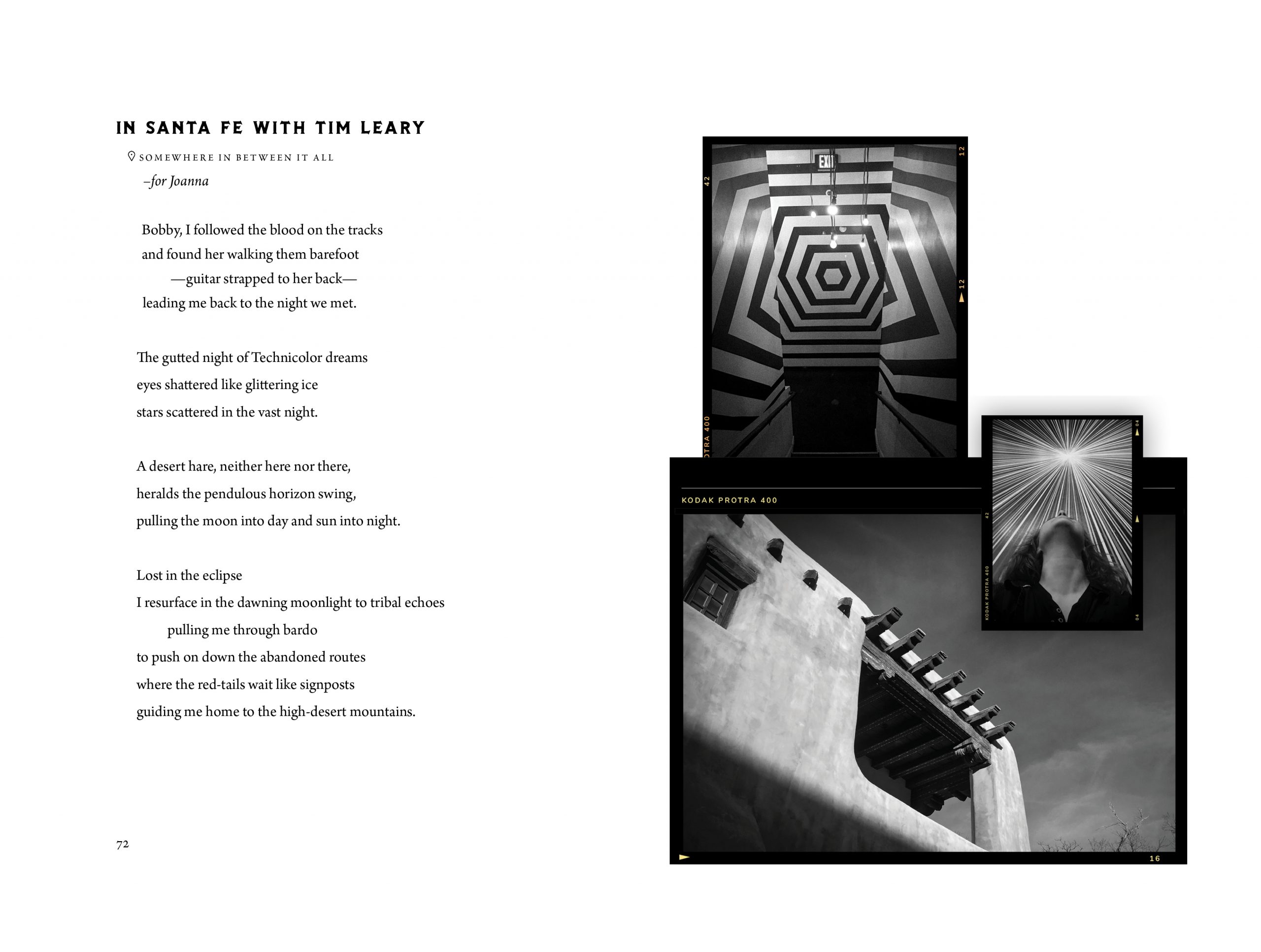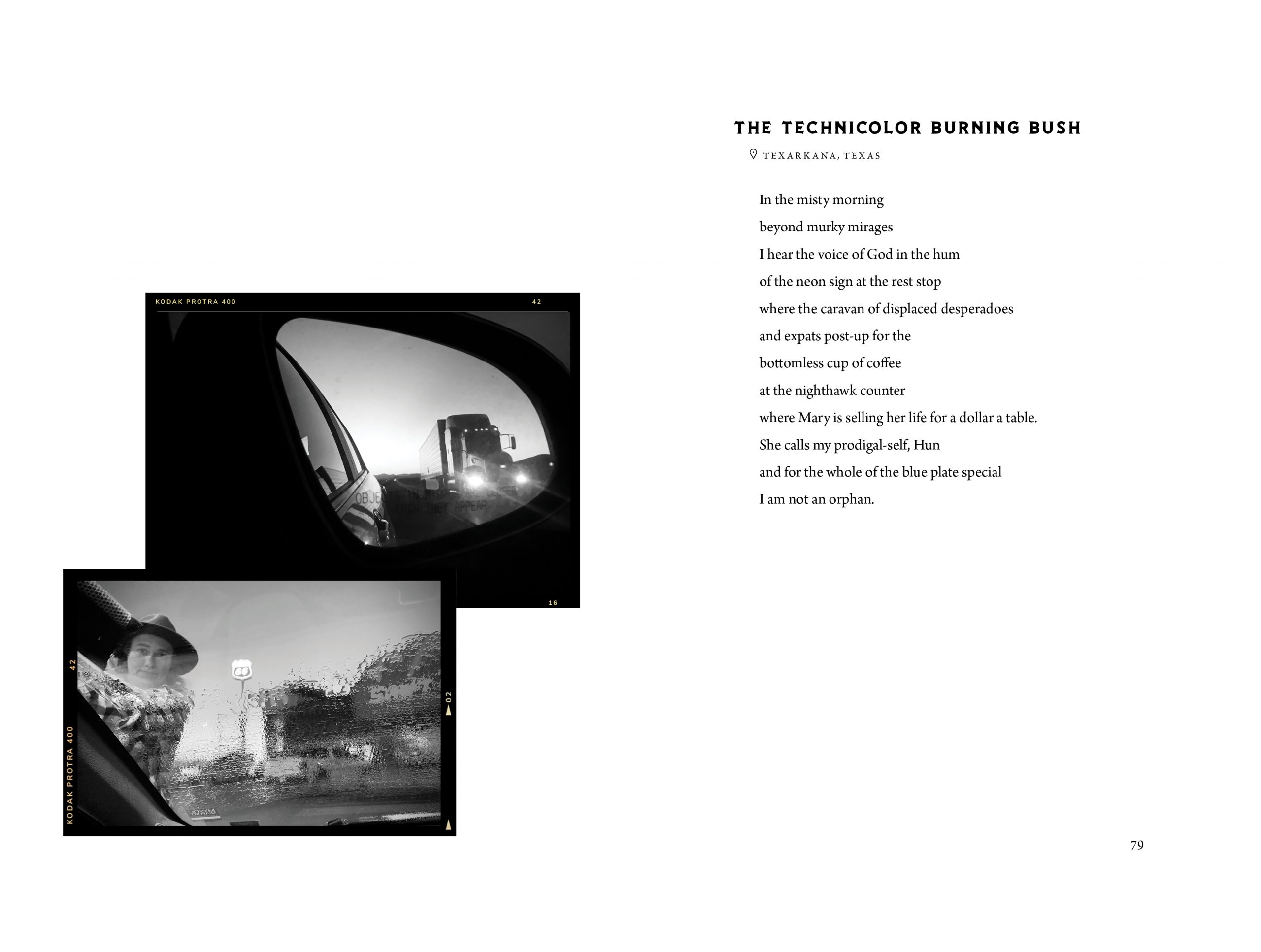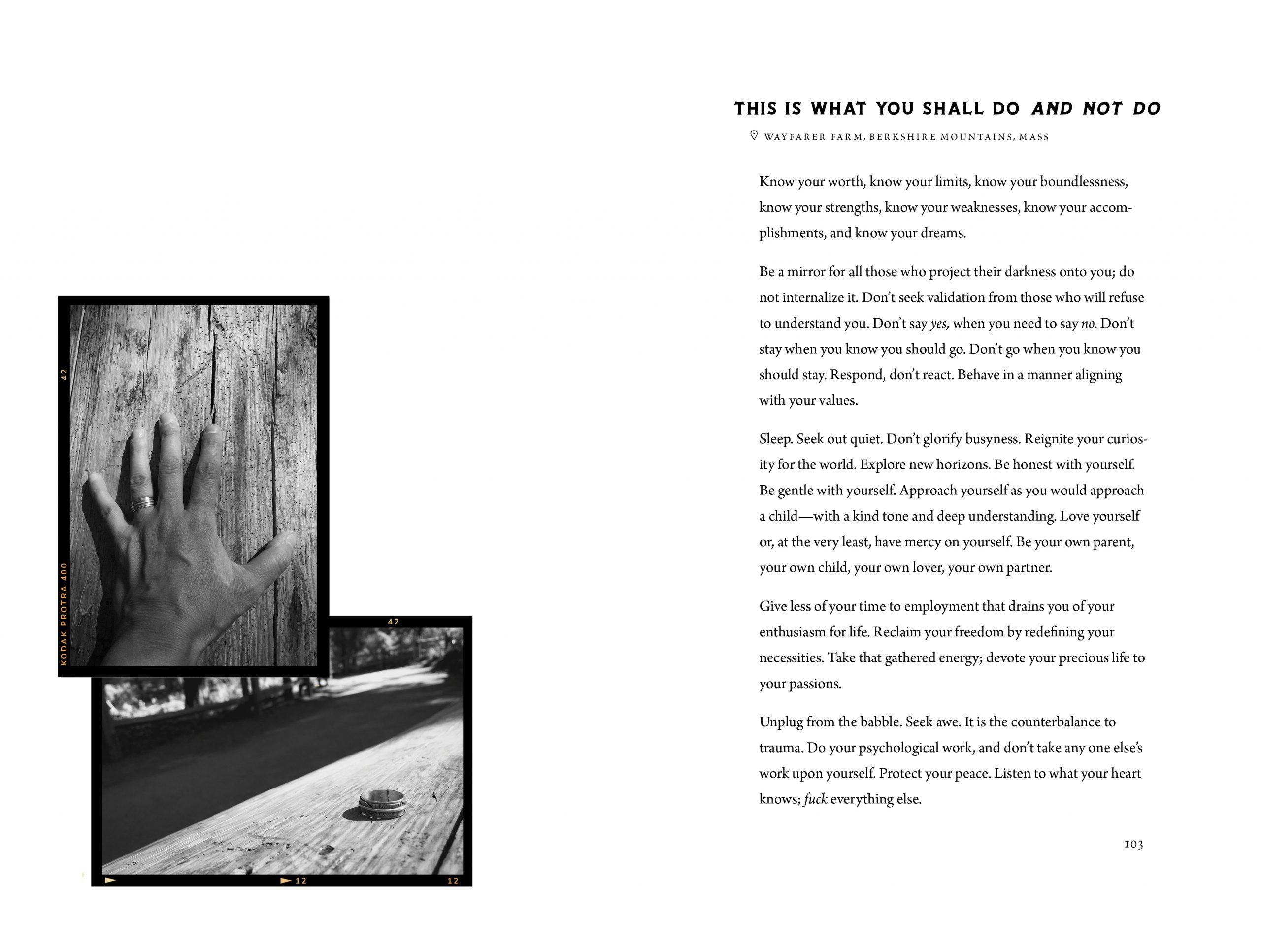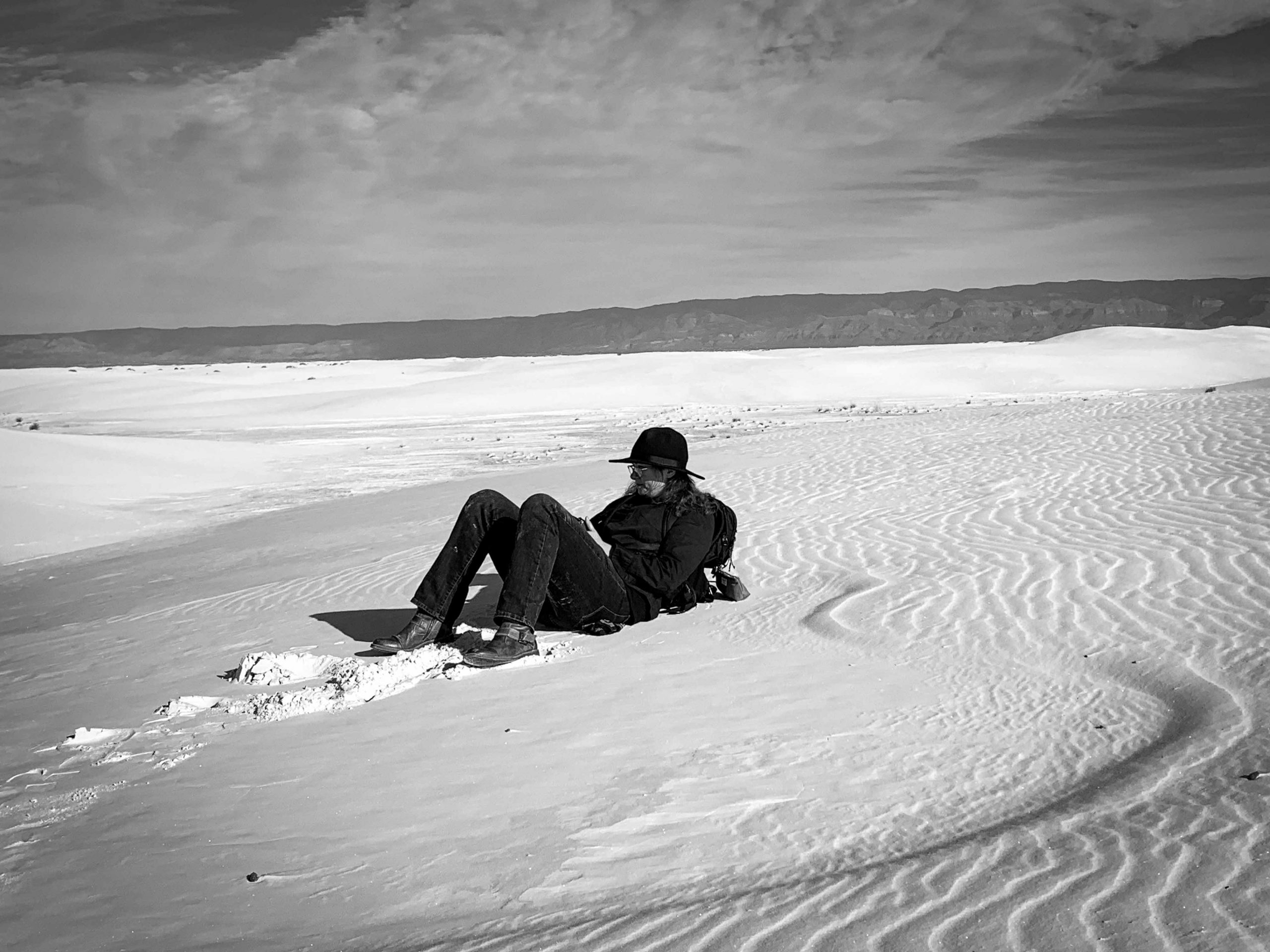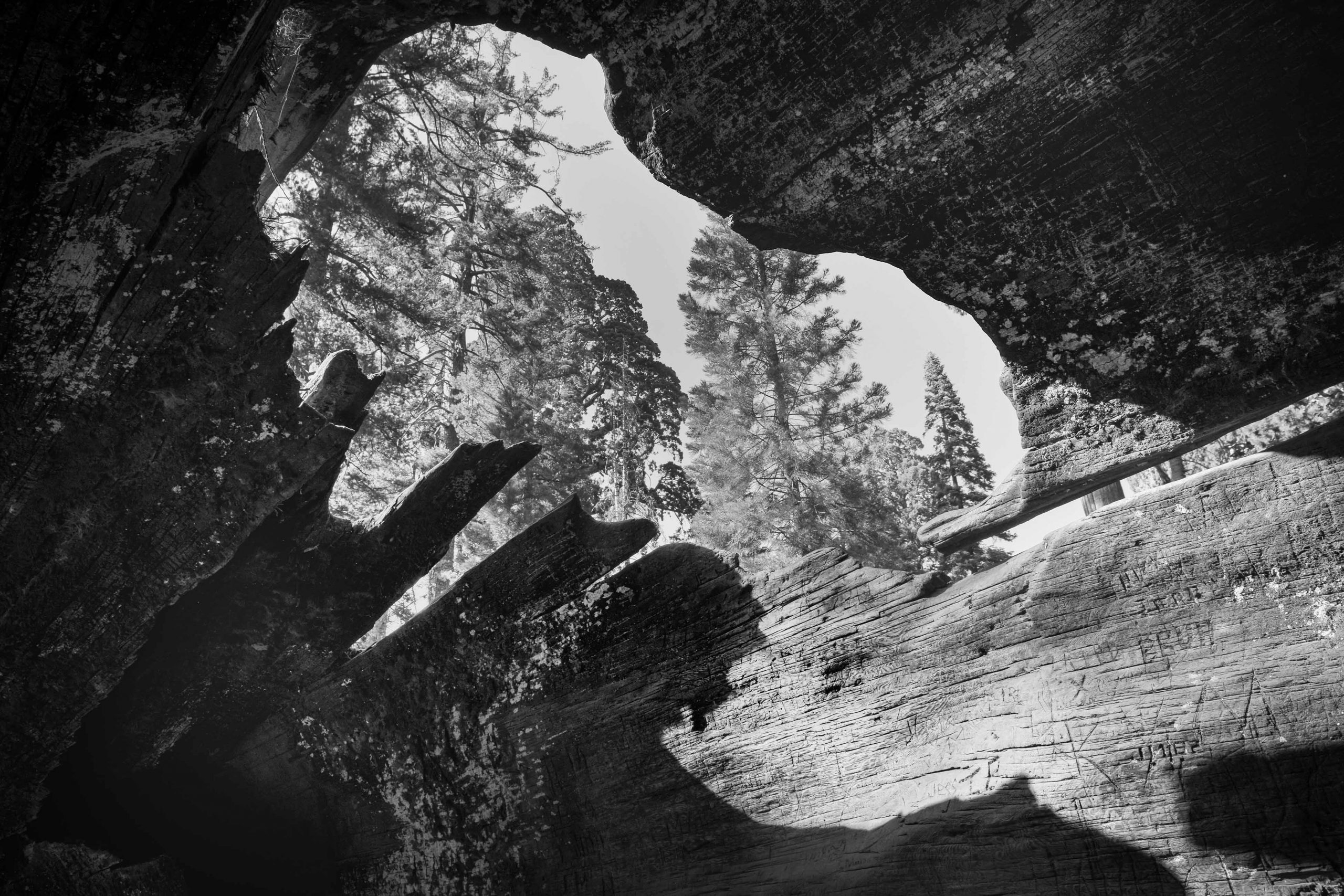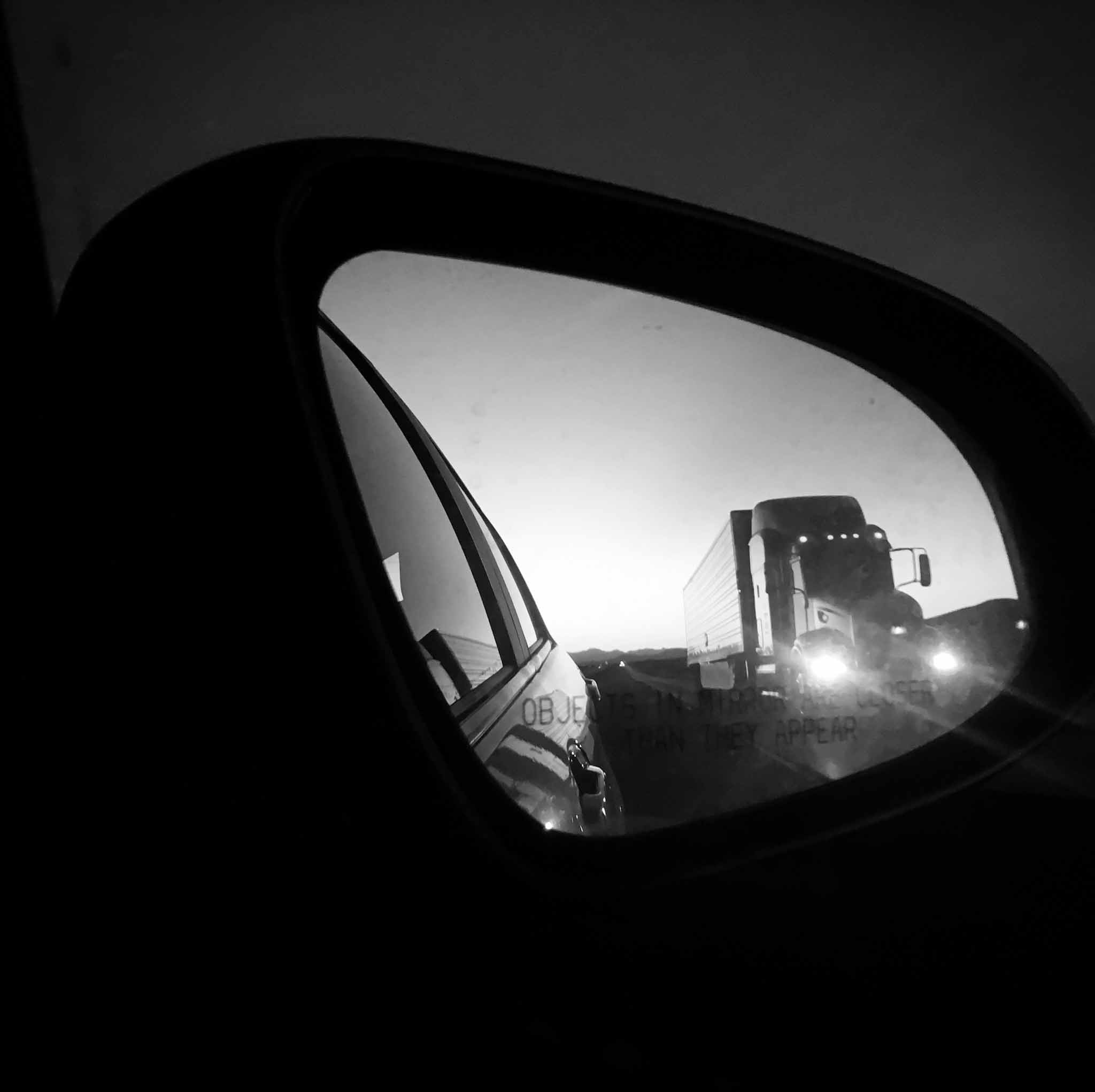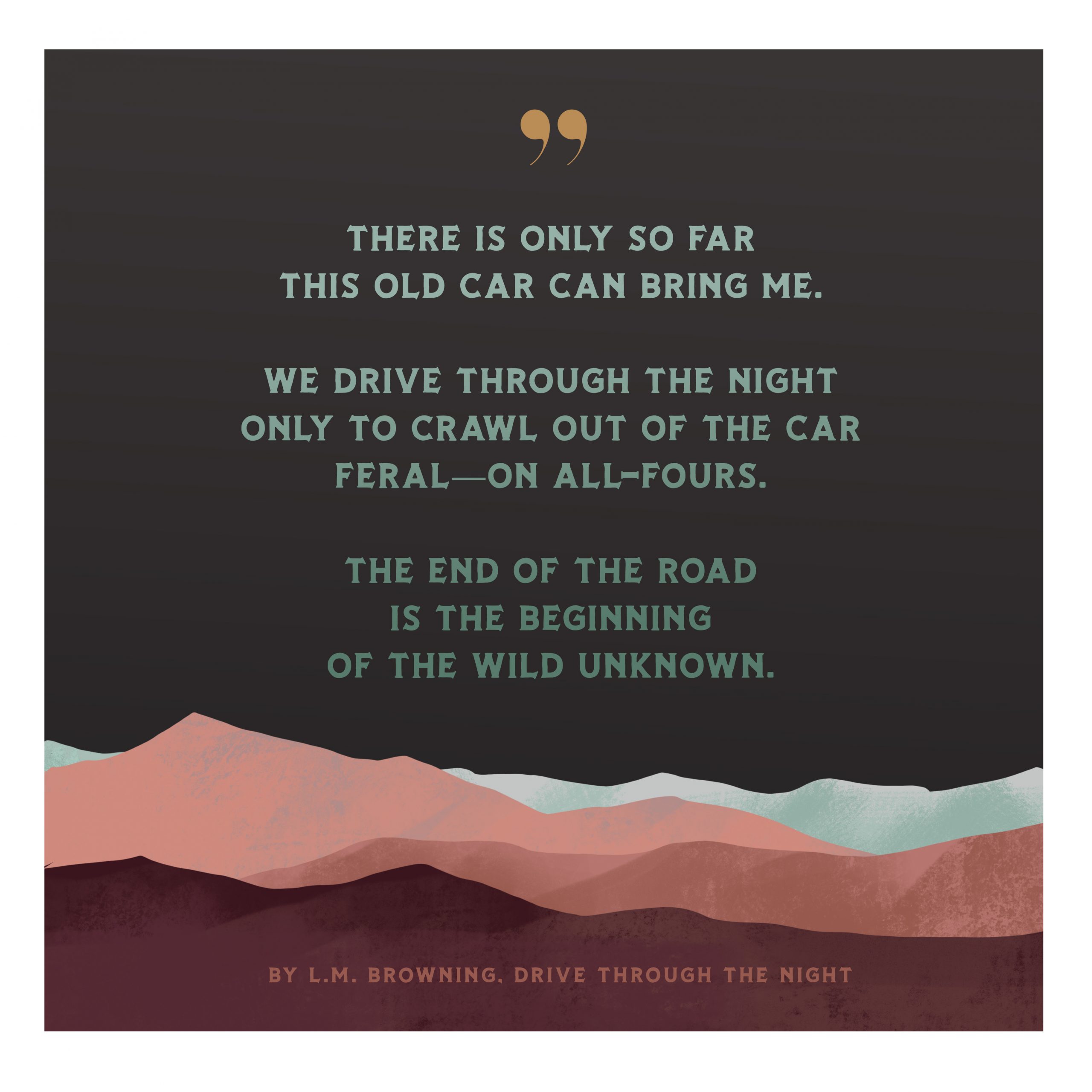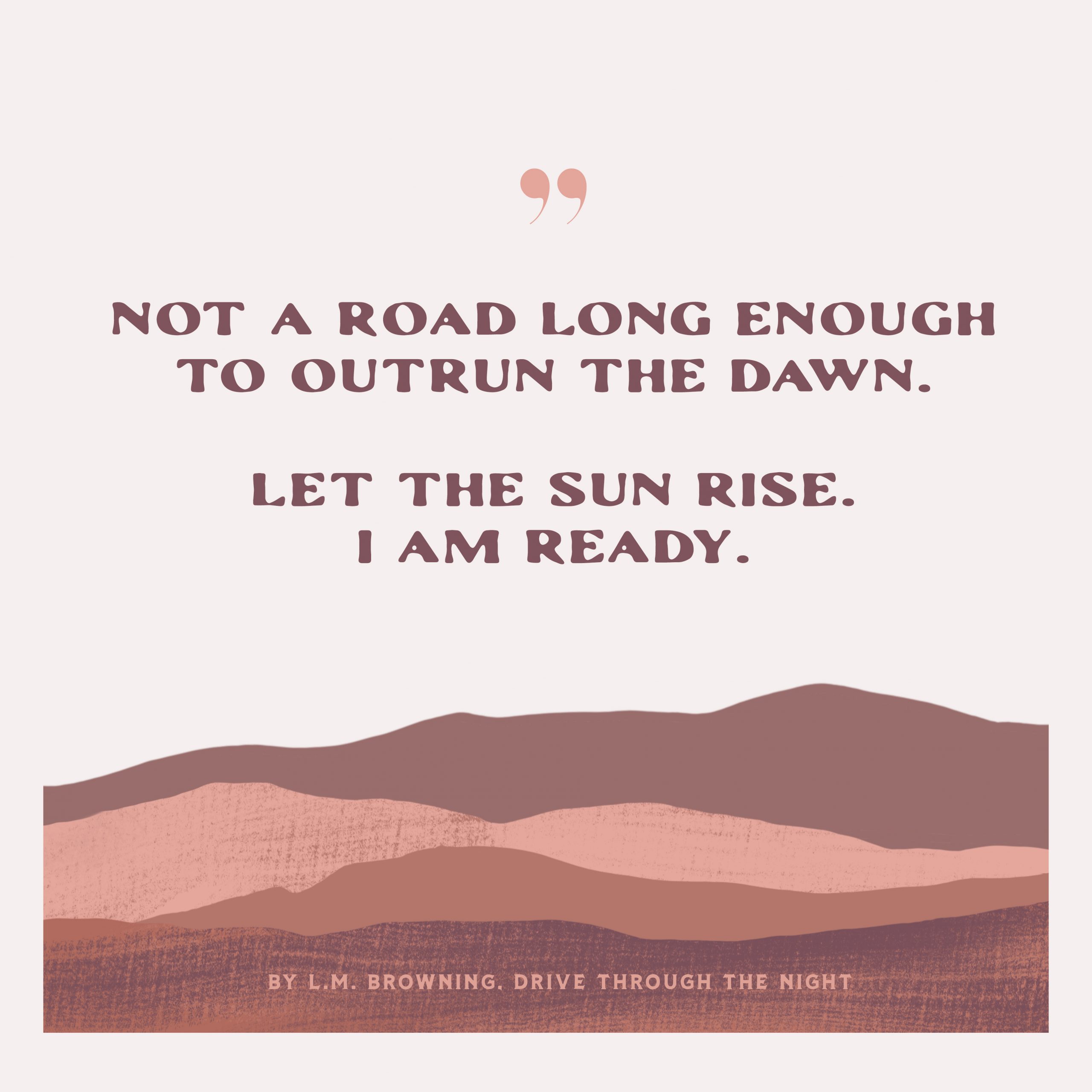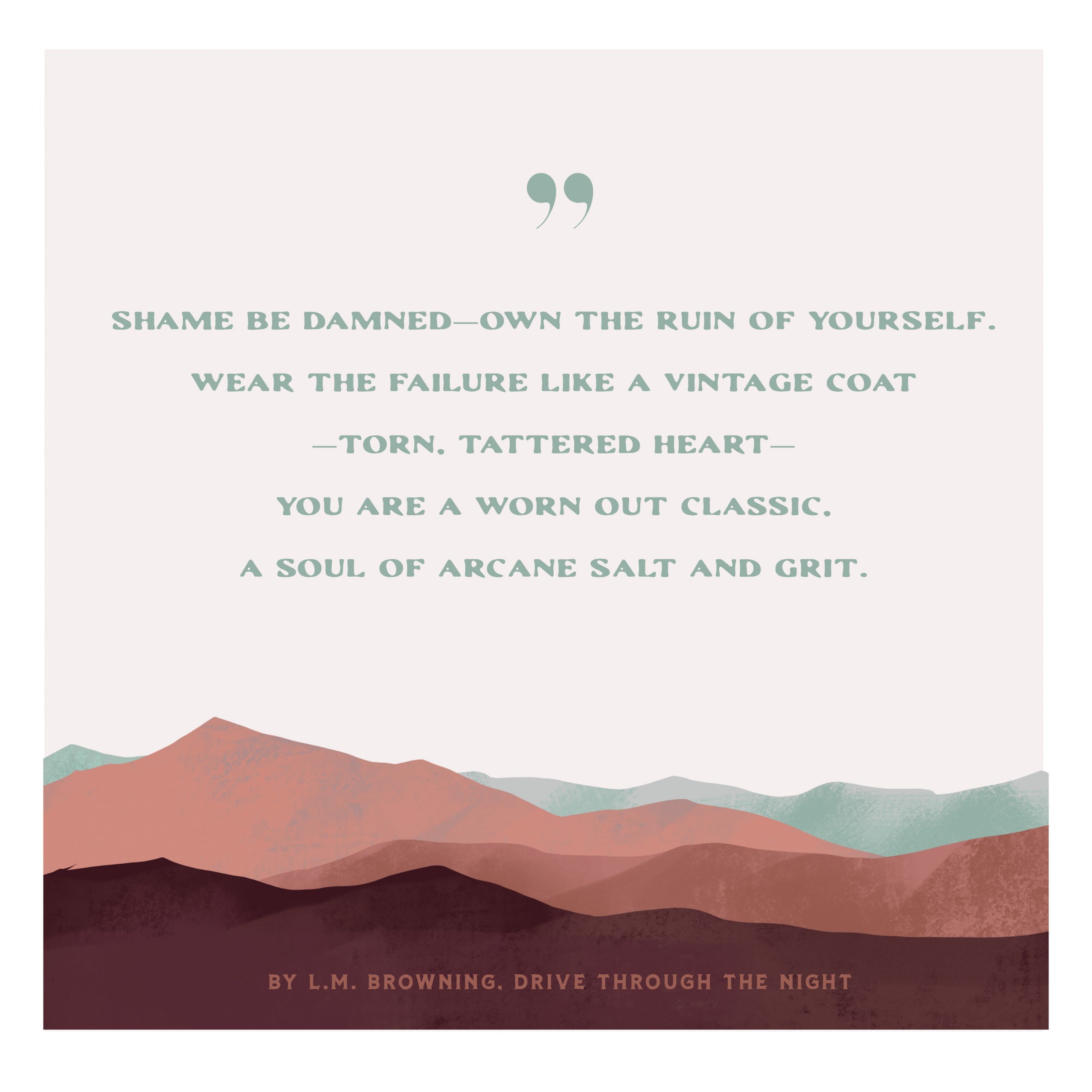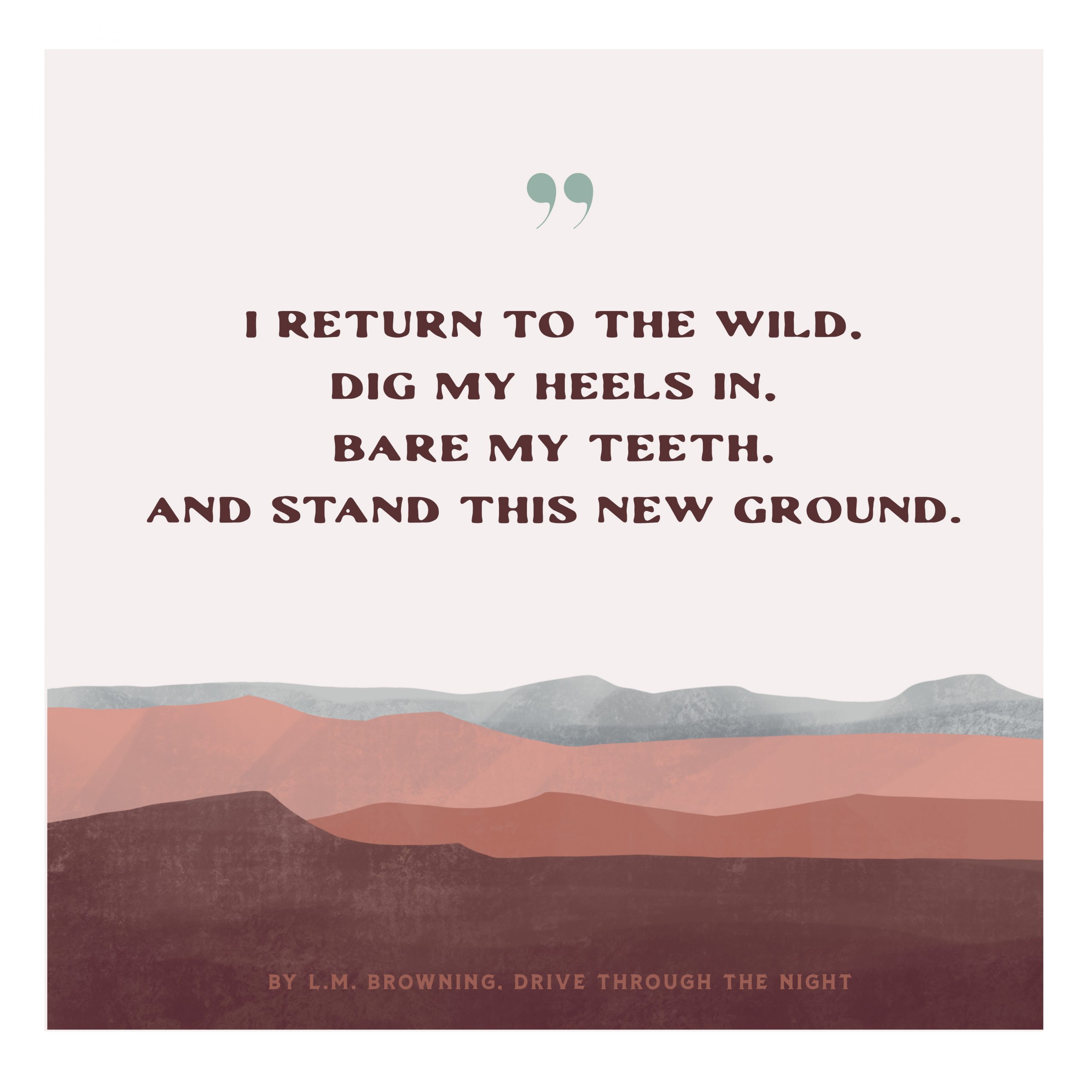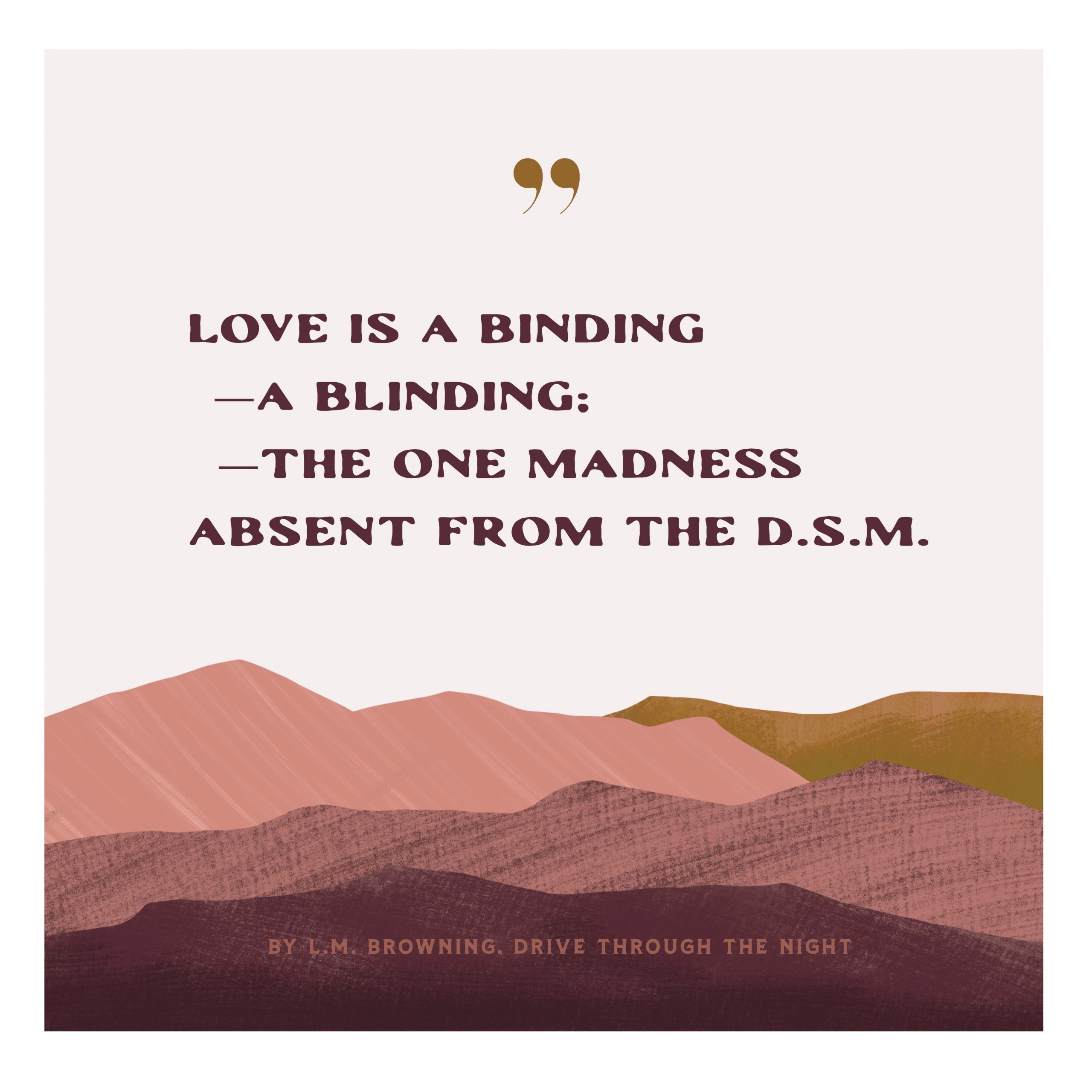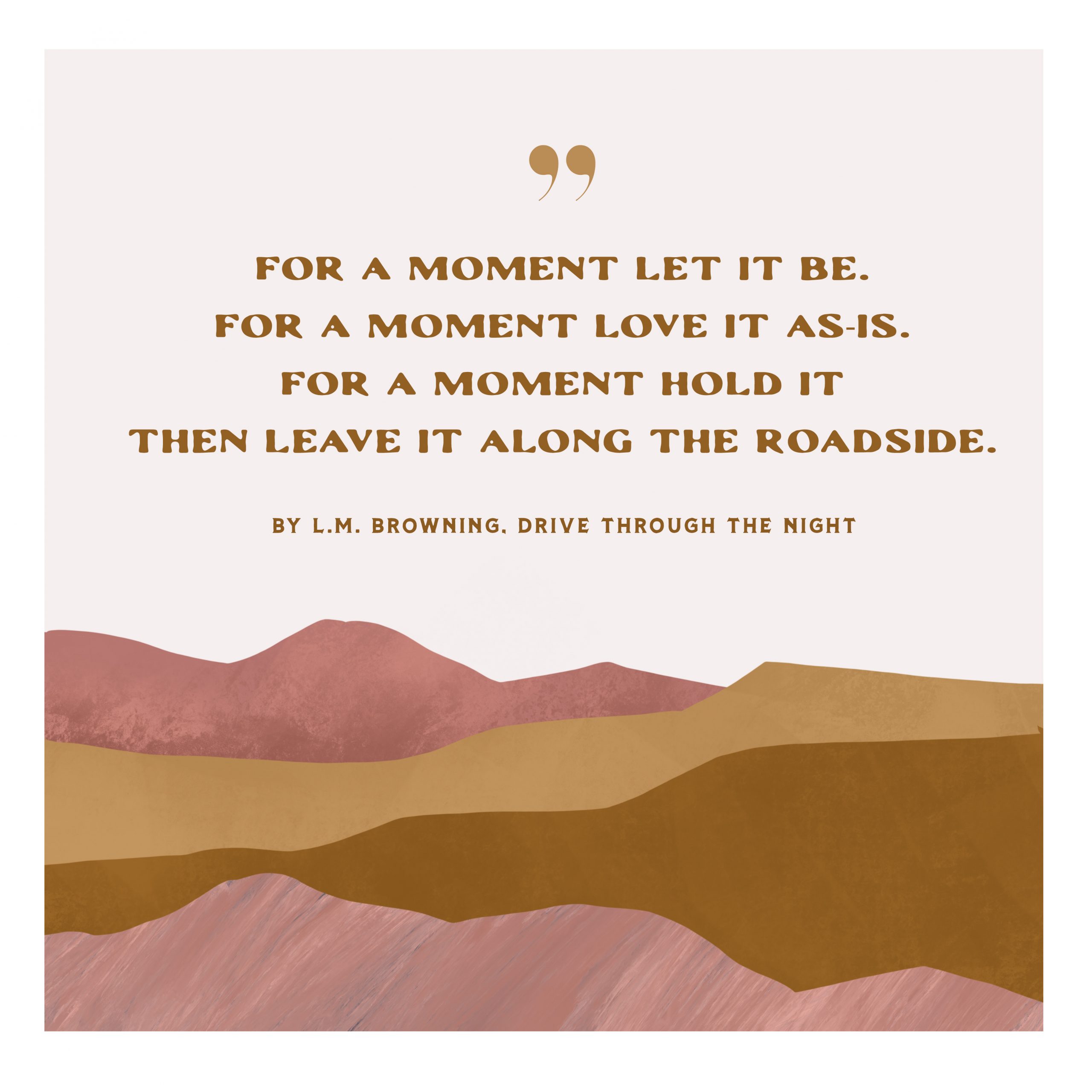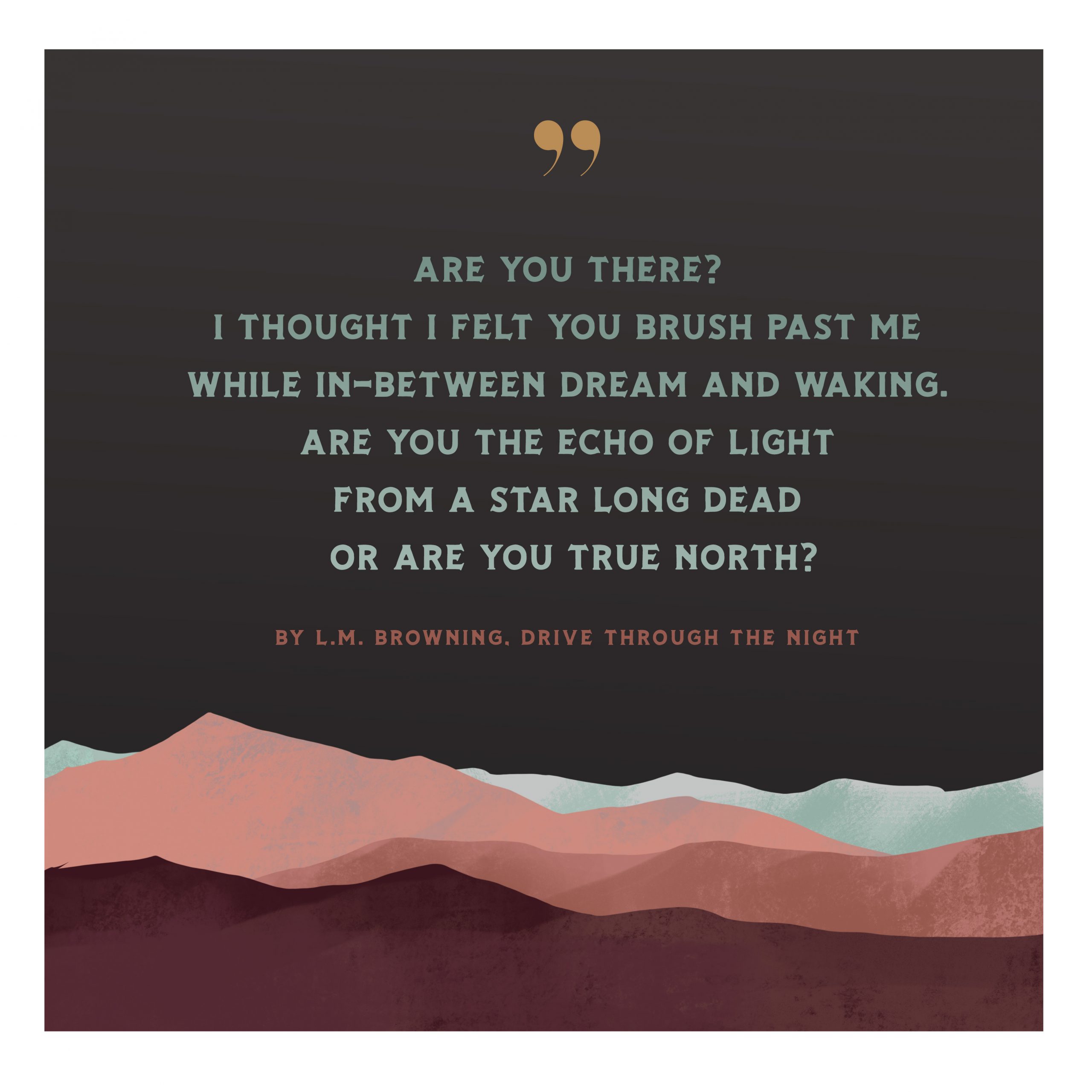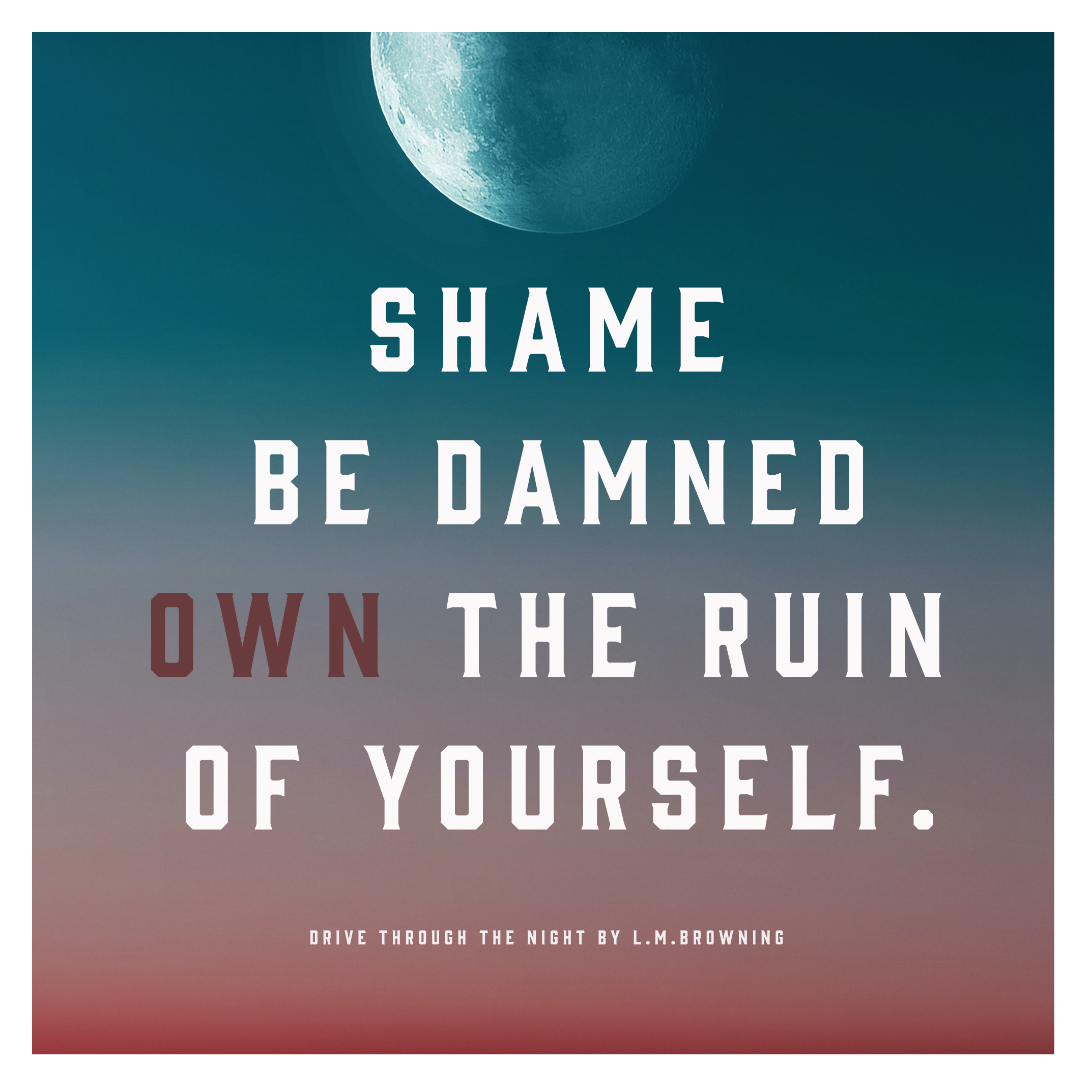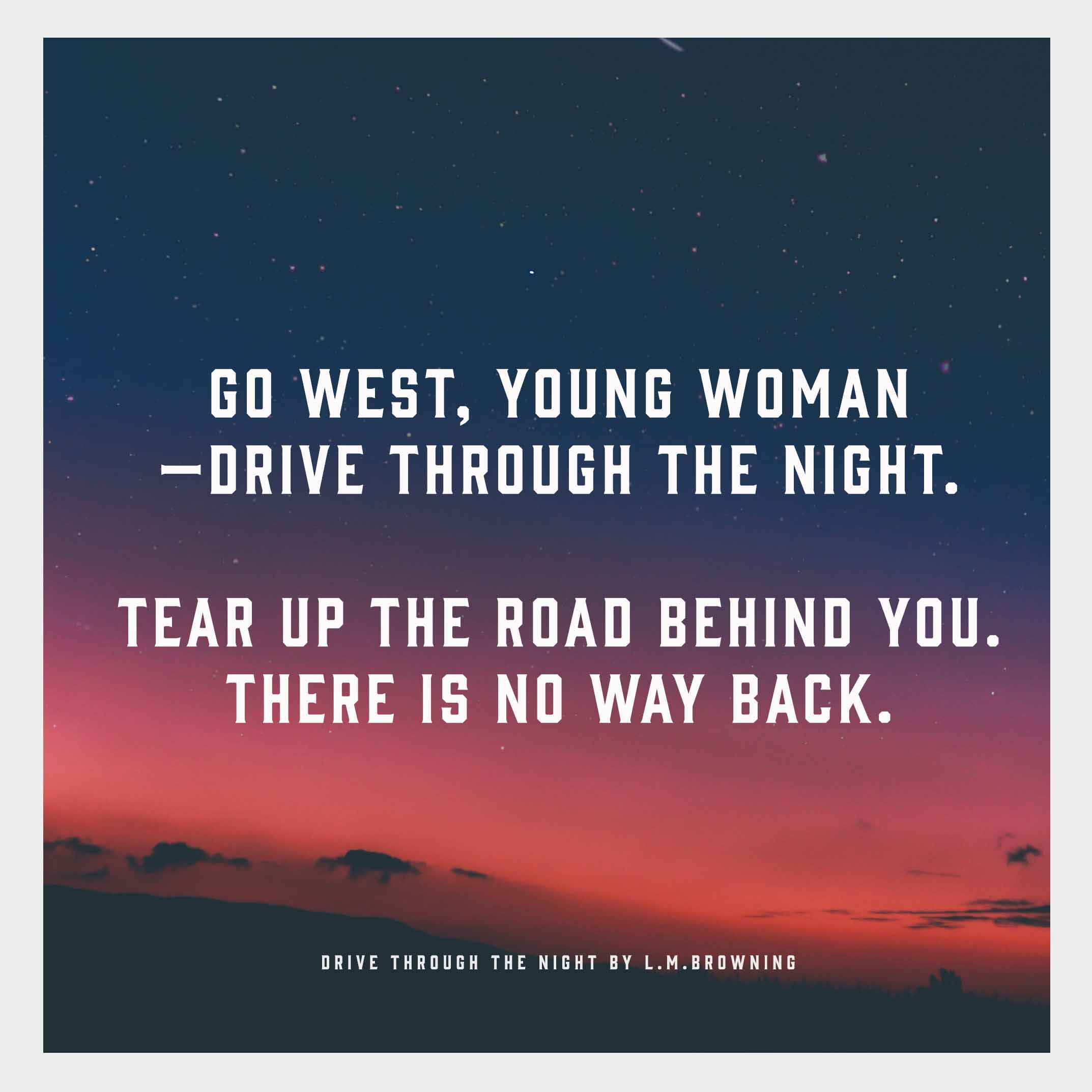
The Latest
Far Rider

Available in Full-color Paperback and eBook.
THE FINAL INTERVIEW WITH L.M. BROWNING
In this special edition of The Wayfarer, Editor-at-Large, Frank Inzan Owen (he/him) sits down in conversation with our Founder, L.M. Browning (they/them), to discuss the topics of gender identity, facing Intergenerational trauma, and seeking awe in the high desert.
In late autumn of 2022, Browning hit the road and disappeared into the backcountry of Northern New Mexico. It was here they began sitting with some larger changes they felt brewing—changes around their pronouns, their gender identity, and their creative pursuits moving forward. Far Rider is the product of that time spent in the wild.
Featuring original photography by Connor Wolfe.
Bio
L.M. Browning

,From 2002 – 2022, Connor Wolfe (they/them) wrote fourteen titles with the pen name, L.M. Browning. Under this moniker, their work received 6 Pushcart Prize Nominations, the Gold Nautilus Medal for Poetry (2010), multiple Foreword Review Book Awards, and finally, the Nautilus Silver Medal for Poetry (2022). Wolfe’s visionary approach to indie publishing afforded them the opportunity to serve two terms on the Board of Directors for the Independent Book Publisher’s Association, speak on the TEDx stage at Yale University, and study at Harvard University via grant programs.
Following the TEDx Talk (2018) which chronicles their own journey with successive trauma, Wolfe was invited to join several larger mental health conversations happening on a state/national level, where they became an advocate for normalizing mental illness through telling our stories in a practice called Radical Authenticity.
Ultimately Wolfe was asked to join the State of Connecticut/NAMI Lived Experience Committee (2021) and became a certified SOSA (Survivor of Suicide Attempts) Peer Facilitator through the Didi Hirsch Foundation in Los Angeles. In early 2023, Wolfe shifted their advocacy work to Queer/Trans Rights in light of the active threat posed to these marginalized communities, of which Wolfe is a part. Wolfe now serves as Creative Director for Homebound Publications and Wayfarer Books (the publishing houses they founded in 2011).
In early 2024, Wolfe accepted a long-term Researcher position in the Collections Department of the Museum of Anthropology at Ghost Ranch in Abiquiu, New Mexico, where they are working as a part of the team readying sacred objections for repatriation under the newly-updated Native American Graves Protection and Repatriation Act.
Cimarron, NM > Berkshire Mnts. MAss
Where we leave off…
Following the release of their micro-memoir, To Lose the Madness, and the TEDx Talk at Yale University based on their life, Browning returns from a six-year poetic silence with, Drive through the Night.
The map of these poems traces the poet’s journey of overcoming and re-becoming while set against the iconic backdrop of the American Southwest.
In Drive Through the Night, we follow the trail of an orphan-turned-vagabond who left behind the white picket fence for the open range and open road.
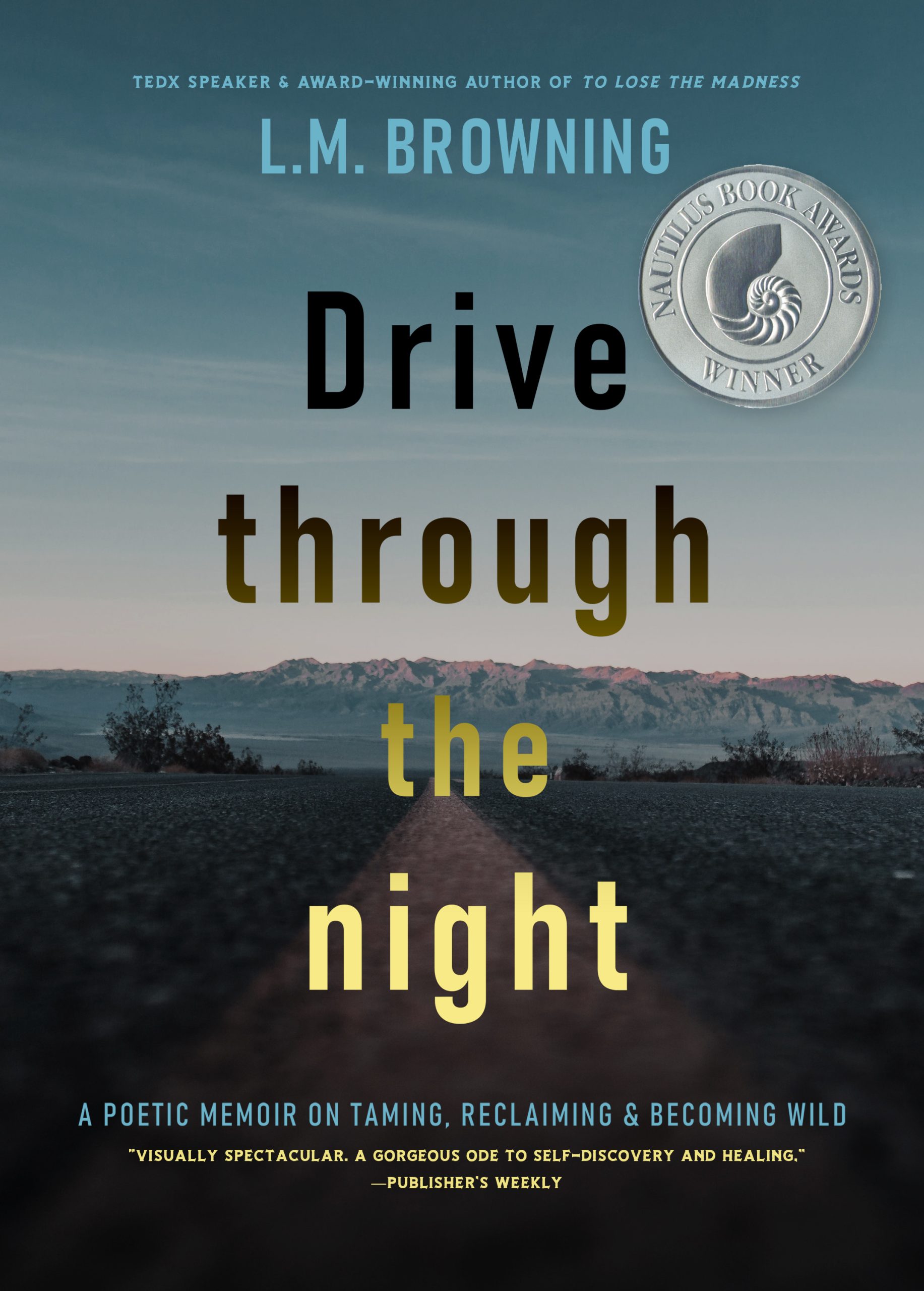
drive through the night
Recent Praise
“visually spectacular. a gorgeous ode to self-discovery and healing,”
—Publisher’s Weekly
“a quiet yet fierce rebirth of the wounded spirit.”
—James Crews, Poet and Editor of The Path to Kindness: Poems of Connection & Joy
“Exquisitely delicate and lyrical…their magnum opus.”
—Caitlin Garvey, author of The Mourning Report
“breathtaking vulnerability.”
—Will Falk, author of How Dams Fall
“Browning uses poetry and photography to detail their evolution from a socialized prisoner of expectations to a reclaimed, authentic self.”
—Foreword Review
yale university, New Haven Conn
The TEDX
Since the release of their micro-memoir, To Lose the Madness: Field Notes on Trauma, Loss and Radical Authenticity, and the subsequent TEDx Talk at Yale based on the book, Browning has worked tirelessly as a Mental Health Advocate and publicly shares their own struggle with c-ptsd as a means to help lift the stigma of mental illness through storytelling.
share as you like
Quote Squares
the RETIREMENT of l.m. browning
Passing the Hat
At the end of 2023, the collected works of L.M. Browning were pulled out of print at the request of the author—all except Far Rider. Excerpts from the works no longer in print, as well as notes from unpublished manuscripts, will be published through the L.M. Browning Substack platform.
Connor Wolfe writes the “Letter from the Editor” for Wayfarer Magazine.
In 2023, Wolfe financed/founded the Radical Authenticity Prize for Trans & NonBinary Writers through Wayfarer Books.
Donate Directly to the Artist
(It’s like passing the hat at the end of the night.)
If you have enjoyed my work under L.M. Browning and are inclined to show gratitude, I invite you to donate directly. Everything gathered by the “tip jar ” (Venmo) goes toward daily necessities. Whether it is a warm cup of coffee or a tank of gas, whatever you pass along is deeply appreciated.
At this point in the journey, we are all just running on compassion.
With Gratitude

DEC 21, 2023, // BERKSHIRE MNTS. MASS.

